- Home
- Lisa Gardner
Catch Me Page 12
Catch Me Read online
Page 12
“Jon Menke,” Griffin said immediately. “Slimy bastard.”
“You think he did it?”
“Please, at the time I would’ve bet my career on it, which it turned out, would’ve cost me, given the second murder one year later.”
“Jackie Knowles,” D.D. filled in. “So you heard about that.”
“Only four dozen times. The friend…Charice, Chartreuse…”
“Charlene. Charlie.”
“That’s it.” Griffin snapped his fingers over the phone. “Charlie something something Grant. She visited our fine headquarters many times. Made her wishes for swift and immediate justice known.”
“What do you think?”
Another sigh. “Crap, it’s January eighteenth. Just three days to go. Well hell…” Griffin stopped murmuring, seemed to collect his thoughts. “Okay, so I can only speak to the Providence scene, and there wasn’t much to it. First responders arrived to a quiet house. Front door was closed but unlocked. In the family room, they found the body of a woman. She was lying there so peacefully, one of the guys dropped to start CPR. Wasn’t until he was leaning over her that he saw the bruises around her neck and realized she was dead.”
“Fully clothed?”
“Dressed in some kind of upscale, dark green track suit—pants, long-sleeved white shirt, matching top. Fluffy white socks, L.L. Bean slippers. Comfy clothes, as one of the detectives put it. Like she’d gotten all settled for the night, then someone rang the doorbell.”
D.D. considered that. Women didn’t usually wear track suits and fluffy socks when expecting male guests, so she went with their theory—Randi had turned in for the night.
“TV?” she asked. “Was it or any lights on when the officers arrived?”
“TV was off, all lights had been turned off—”
“Print the switch plates?” D.D. interrupted.
“Duh,” Griffin informed her drolly. “Nada. Perp was definitely wearing gloves and, less quantifiable, but I’d say knew the house. Felt comfortable there. It’s like he showed up, did the deed, then tidied up. Turned off lights, mopped the floor, wiped down the kitchen for all we know. But the scene was tidy. Except for the dead body, of course.”
“So maybe there had been a struggle,” D.D. challenged. “Maybe Randi put up a helluva fight, and that’s why the perp cleaned up afterward.”
“Maybe. No signs of trauma on the body, though. No defensive wounds, no bruising. All in all, it’s like someone walked in, put his hands around her neck, and that was that.”
“You’ve said he a couple of times. So you’re thinking a male attacker?”
“ME’s best guess. It’s not easy to manually strangle someone. Takes a bit of muscle but also finger strength. Randi was an average-sized female, five five, hundred and twenty, did Pilates four times a week. In theory, it would take someone bigger and stronger to overpower her so quickly.”
D.D. pursed her lips. “And Jon Menke?”
“Weasel,” Griffin muttered. “Six feet, one ninety, physically fit, spent four to five mornings a week at the gym. Apparently, he felt a doctor should look the part. We learned his female colleagues appreciated that.”
“A ladies’ man?”
“Definitely not monogamous.”
“Did Randi know?”
“Apparently part of the cause for the divorce. The other part being that he liked to beat the shit out of her.”
“Document it?” D.D. asked sharply.
“Oh yeah. To give Randi some credit, she did her homework before leaving the bastard. Called a hotline, got some advice. She’d filled an entire safety deposit box with photos and walk-in clinic reports before dialing up the lawyer and making a break for it. And trust me, Menke was pissed off about that. His wife not only left, but got him branded as a wife beater while nailing him for alimony. Yeah, Menke had every reason to want her dead and was fully capable of getting the job done.”
“Except…” D.D. drawled out.
“Alibi,” Griffin supplied. “A cocktail waitress, mind you, some pretty young thing who probably saw his pecs, his paycheck, and his Porsche and promptly forgot things like his history of domestic abuse, but they were in a bar and several regulars backed their claim. In the end, we couldn’t break it.”
D.D. thought about it. “You said he had a history of smacking his wife around?”
“Yep. Fat lips, black eyes, a wrecked knee where apparently he’d kicked her.”
“Sounds like a guy who had trouble managing his temper.”
“Yep.”
“But, the homicide scene…”
“Looks like the work of someone fully in control,” Griffin agreed. “Which was the second problem with pursuing Menke. On the one hand, it just felt right to nail him for something. On the other hand, this something didn’t feel like his kind of something. He would’ve trashed the place. Not to mention, according to our criminologist, wife beaters who become wife killers almost always disfigure their spouses. Shoot them in the face, stab them five dozen times. It’s a personal, frenzied, dehumanizing attack. This…this was cold-blooded. More akin to murder-for-hire, which became our next theory.”
“Oooh,” D.D.’s eyes widened. “Menke paid someone to take down his too-good-for-her-own-good ex-wife.”
“Yeah. My theory. Real winner at the time, and maybe still the best theory, but we could never find a money trail. Now, the feds were investigating Menke for health care fraud at the time, and the money trail there was long and convoluted. Lot of suspicion that he was dealing prescription drugs on the side, which would’ve given him access to both cash and a certain ‘clientele’ we could never prove. So murder-for-hire remains the most likely scenario, in my mind.”
“Did you ever get him for fraud?”
“Feds got him. Small potatoes though. Could only prove the tip, not the iceberg. But it was enough to have his medical license revoked, plus he’s serving three-to-five in a Club Fed somewhere. You can contact a Boston FBI agent, David Riggs, if you have more questions. He ran the health care fraud investigation.”
“When you pressed Menke about his wife’s murder, how’d he take it?” D.D. asked. “Get hostile on the subject, or smug?”
“Moral indignation. He was totally over her, how dare we suggest otherwise.”
“Ah, moral indignation. Always a nice choice for a wife beater. Taking the high road.”
“Well, he was a doctor you know.”
Both D.D. and Griffin lapsed into silence. “No physical evidence at the scene?” she tried again.
“Only evidence was lack of evidence,” Griffin assured her.
“What do you mean?”
“Most homes have fingerprints. How odd that this one didn’t.”
“So the killer really did clean up afterward.”
“Stone cold and handy with a sponge. I’m still thinking murder-for-hire, and this guy has quite the résumé.”
“And the second murder?” D.D. tried. “In Atlanta?”
“Don’t know the details. Only heard after the fact from Charlie, plus some Atlanta Feebie, Kimberly Quincy, gave me a buzz. She’d heard there might be a connection between Jackie Knowles’s murder and a Providence case and was curious. She commented that the Knowles scene was equally pristine. Other than the dead body and all.”
D.D. frowned. She didn’t like it. “They gotta be connected,” she muttered now. “I mean, how many clean murder scenes have you seen in your day?”
“Counting Randi’s: one.”
“Exactly. So they have to be connected. But how?”
“Question,” Griffin corrected, “is who? We knew Randi had at least one enemy—her ex. But what about Jackie Knowles? Who had reason to want her dead?”
“Murder-for-hire suggests money,” D.D. said immediately. “But two different victims from two different families rules out inheritance.”
“Please, Randi wasn’t getting that kind of alimony. She had thirty bucks in checking, that was it. Look,” Griffin took
a deep breath, “I gotta run in a minute, but for what it’s worth, when I heard about the Atlanta scene, I went back to the area hotels. Tried to see if maybe a mutual acquaintance of Randi and Jackie might be in town. They grew up together, right? So maybe a neighbor, classmate, friend.”
“Charlie yada yada Grant,” D.D. guessed.
“Not that I could prove, but maybe she paid for a room with cash.…You know how it is.”
D.D. nodded. She did know how it was. “She found me, you know.”
“Charlie something something Grant?”
“Yep. She’s living in Boston now. Running from her neighbors, classmates, friends.”
“Three days until the twenty-first,” Griffin murmured.
“Yep. She wanted to meet me in person. She hopes, if she doesn’t survive the twenty-first, that’ll make me try harder to solve her murder.”
“Shit,” Griffin drawled.
“My thought, exactly.”
Griffin said, “You should call Atlanta. Try the Feebie. She seemed all right. Wish I could help you more, especially given the time line…”
D.D. agreed. Three days to solve two cold cases that hadn’t yielded any leads in the past two years…“So,” she asked briskly. “If you were me, who would you be on the lookout for?”
“Someone physically strong, mentally patient, good with his words, better with his hands, and absolutely positively soulless. Probably above average computer skills as well—the Internet being every stalker’s new best friend. Conversely, I’d tell Charlie that as long as she’s running, stay off the net. Logging on these days is like sending out smoke signals: Here I am. And mine the connections. How many people really knew all three women? In fact, here’s a thought—have you checked out Facebook? Sometimes there are pages in memoriam, you know, in honor of Randi Menke and/or Jackie Knowles. See who’s posting, then track them down. Might give you a start.”
“Lotta man hours for a case that’s not even a case,” D.D. muttered. Then in the next instant, she thought of Detective O, Internet predators, and online grooming and felt a satisfying click in the back of her head. Ten weeks of total sleep deprivation, and she still had it. “Thanks, Griffin,” she said hastily. “You just gave me an idea.”
Chapter 12
JESSE FLEW OFF THE SCHOOL BUS, slinging his Red Sox backpack over his left shoulder while dashing down the snowy street. Didn’t have a watch. Wasn’t sure about the time, but the bus had been late. Wouldn’t it figure that today of all days the bus would be late? Had to hurry, hurry, hurry.
He hit the front steps of the apartment building and jumped them two at a time before slapping the palm of his hand against the buzzer for his apartment. His mom, expecting him, buzzed back. He jerked open the heavy outer door and leapt for the stairs, missing the bottom two, hitting the edge of the third and sliding down on his knees before he got his feet beneath him and finished the long rat-a-tat dash up three levels. He was already digging in his coat pocket for the apartment key. He arrived at his unit’s front door, sweaty, trembling, and feeling a little sick.
Couldn’t be late, didn’t want to be late.
Helmet Hippo was depending on him.
Jesse jammed the metal key in the lock, got the door open, and burst into the apartment, already hemorrhaging boots, backpack, mittens, coat, hat, snow pants. No time for snack. Gotta move, move, move.
He sprinted for the table, hitting the power button above the keyboard of the computer as his mother yelled down the hall: “Jesse, you okay?”
“Yeah, yeah, yeah. Just gonna play a game.”
“Jesse?”
“AthleteAnimalz. Geez, Mom, everything’s all right!” Second the words left his mouth, Jesse bit his lower lip, realizing too late, he should’ve watched his tone. Sometimes, if he was “fresh,” his mother would take his computer privileges away. He paused, hand still on the computer, eyes on the screen as the old laptop slowly churned to life.
But his mother didn’t appear in the hallway, didn’t say anything more. Probably on a call, couldn’t tear herself away. Jesse felt guilty, but grateful. He darted away from the loading computer long enough to grab Zombie Bear and a glass of milk. The stove clock told him it was 3:42 P.M.
Yep, he was late. Very late.
He flew back to the table, sloshing some of the milk over the rim of the glass, then had to run back to the kitchen for a napkin, and by the time he returned and cleaned up the mess, his heart was really going thump, thump, thump and he didn’t feel well again. He was hot, like shaky and trembly and he wanted to cry, but he didn’t know why.
He was late and Helmet Hippo would be mad and he’d been fresh and now probably his mom was all mad and he just wanted a friend; he just wanted everything to be okay and for someone to like him, and for his mom to not have to work so hard and for their downstairs neighbor Mrs. Flowers not to bang on the floor all the time when he was trying to use quiet feet but still wasn’t so quiet.
Jesse plopped down in front of the computer, entered the AthleteAnimalz website, and did his best not to weep. He knew he was late. He still didn’t want to blubber like a big baby.
Homerun Bear had mail. Jesse’s arm was trembling so badly, it took him three tries with the mouse to click on the mailbox icon. The letter was from Helmet Hippo. It included a smiley face and a picture of a baseball mitt.
“Hey Bud. I’m here and ready to play. Find me when you’re ready. Your friend, Helmet Hippo.”
Then Jesse did cry. Giant tears of relief. Helmet Hippo wasn’t mad at him. Helmet Hippo still wanted to play.
Helmet Hippo was still his friend.
Jesse sobbed gratefully.
Chapter 13
AT 4:31 P.M., I began phase one of operations. First up, dress code. I went with black jeans, black turtleneck, thick-tread running shoes, and a black wool coat, all courtesy of the local Salvation Army store.
I looked like a cat burglar, or a New Yorker, depending on your frame of reference.
I loved the shoes and tried to get over it. Phase four of operations involved pitching the entire ensemble into a public Dumpster. Not that the police couldn’t find or wouldn’t find the items, but there was nothing to prove these particular secondhand clothing articles were mine. A precaution built into a precaution built into a precaution.
So far, it had worked for me.
Exiting the house, I wore a bright turquoise scarf and matching hat and oversized mittens. I’d read somewhere that one of the keys to any disguise was distinguishing accessories—later, witnesses would associate me with the aqua scarf or shocking gloves, meaning I couldn’t be the black-clad perpetrator. Obviously, I was wearing turquoise at the time!
I had my messenger bag slung over my shoulder, stuffed with wadded newspaper to give it the appearance of bulk. Later, the newspaper would be tossed and replaced with my overbright scarf, hat, and mittens. For now, the bulk of the leather bag disguised another telltale bulge—my Taurus. 22 holstered at my waist on a belt specially designed by my firearms coach, J. T. Dillon, to hold twenty-seven extra rounds of ammo.
I would see him for the last time tomorrow. I had a feeling he knew a little bit about tonight, too. But he didn’t pry and I didn’t inform. Instead, our conversation two weeks ago had gone something like this:
“If I needed to, say, establish a new identity…for example, get my hands on a complete set of top-of-the-line papers, would you know who I might contact to make such arrangements?”
J.T., loading his. 45. “Seems like I get asked that question a lot.”
“Beats girls asking what’s your sign.”
J.T., finally looking up at me. Me, doing my best not to squirm beneath that gaze. Before J.T. took on a serial killer, shot up half of Massachusetts, and eventually found a wife, he was a marine, Force Recon. Mostly, he reminded me of an old gunslinger, possessing the salt-and-pepper hair, leathery brown face, and deeply lined eyes of a man who’d spent most of his life peering into the horizon and was never surprised by wha
t he saw there.
“Nothing’s cheap,” he said.
“I got a rainy day fund. Hey, it’s raining.”
“My wife likes you,” he said, as if that settled the matter for him. Maybe it did. I’d met his wife only once before. She’d studied me for half a second, then walked over and wrapped me into a tight embrace. I got the feeling Tess was as tough as her husband, and that if I ever took them up on their offer of dinner, we’d have a lot to say.
J.T. provided a name. Told me to wait twenty-four hours, so he could vouch for me. He must’ve, because when I made the call two days later, the crisp-voiced woman on the other end seemed to be expecting me. She asked questions. I provided answers. And three days ago, for the bargain basement price of one thousand dollars, I picked up three sets of brand-new, top-of-the-line fake papers: three birth certificates, three Social Security cards, one driver’s license.
Everything a terrified woman might need to stay on the run for the rest of her life.
I wasn’t sure I could imagine that, to tell you the truth. It’s funny, but boxing and shooting and running had awakened something inside me. Turns out, I had a violent streak. It’d only taken me twenty-eight years to figure that out, but these days, I was doing my best to make up for lost time.
Exiting the back door of my landlord’s house, I was grateful to come around and discover the front porch clear, no sign of Tulip. Tonight was a solo mission for sure.
I hunched deeper into my coat, chin tucked to collar to fight the biting cold, and set off for Harvard Square. Ten-minute walk to the T stop. Eight minutes waiting for the train, then off and moving again.
Rush hour, the subways crammed full. I stood in the middle, just another nameless commuter, hand gripping the metal support pole, legs swaying in rhythm with the railcars, inhaling the subterranean scents of sweat and urine and wet wool coats.
I hummed softly under my breath, my only concession to my growing nervousness.

 Find Her
Find Her Before She Disappeared
Before She Disappeared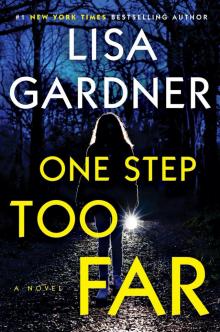 One Step Too Far
One Step Too Far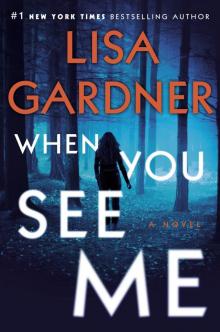 When You See Me
When You See Me Never Tell
Never Tell Touch & Go
Touch & Go The Survivors Club
The Survivors Club MacNamara's Woman
MacNamara's Woman Love You More: A Novel
Love You More: A Novel Gone
Gone The Perfect Husband
The Perfect Husband Maggie's Man: A Family Secrets
Maggie's Man: A Family Secrets The 7th Month
The 7th Month The Neighbor
The Neighbor Hide
Hide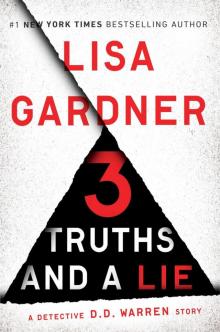 3 Truths and a Lie
3 Truths and a Lie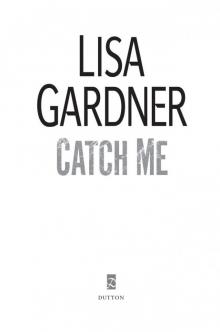 Catch Me
Catch Me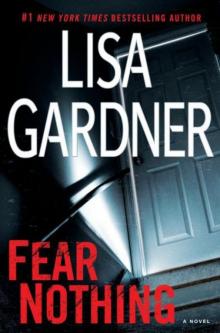 Fear Nothing: A Detective
Fear Nothing: A Detective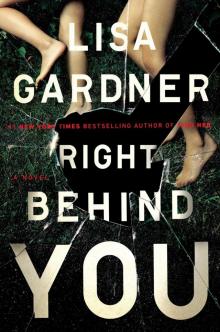 Right Behind You
Right Behind You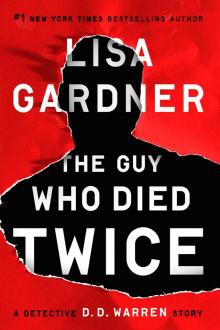 The Guy Who Died Twice
The Guy Who Died Twice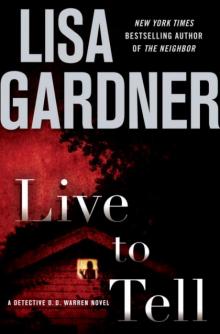 Live to Tell: A Detective D.D. Warren Novel
Live to Tell: A Detective D.D. Warren Novel Live to Tell
Live to Tell Maggie's Man: A Family Secrets Novel
Maggie's Man: A Family Secrets Novel The Other Daughter
The Other Daughter Alone
Alone Crash & Burn
Crash & Burn The Detective D. D. Warren Series 5-Book Bundle
The Detective D. D. Warren Series 5-Book Bundle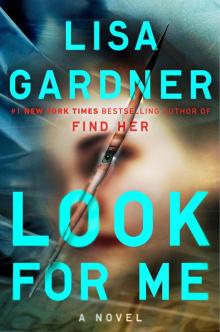 Look for Me
Look for Me Love You More
Love You More The FBI Profiler Series 6-Book Bundle
The FBI Profiler Series 6-Book Bundle The Third Victim (Quincy / Rainie)
The Third Victim (Quincy / Rainie) Say Goodbye
Say Goodbye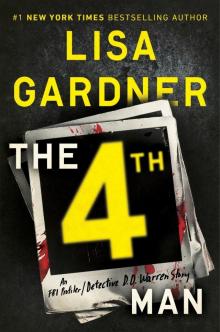 The 4th Man
The 4th Man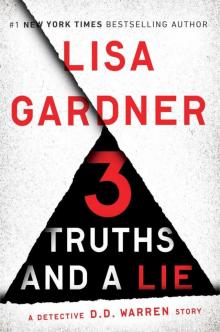 3 Truths and a Lie: A Detective D. D. Warren Story (Kindle Single)
3 Truths and a Lie: A Detective D. D. Warren Story (Kindle Single) Brandon's Bride
Brandon's Bride